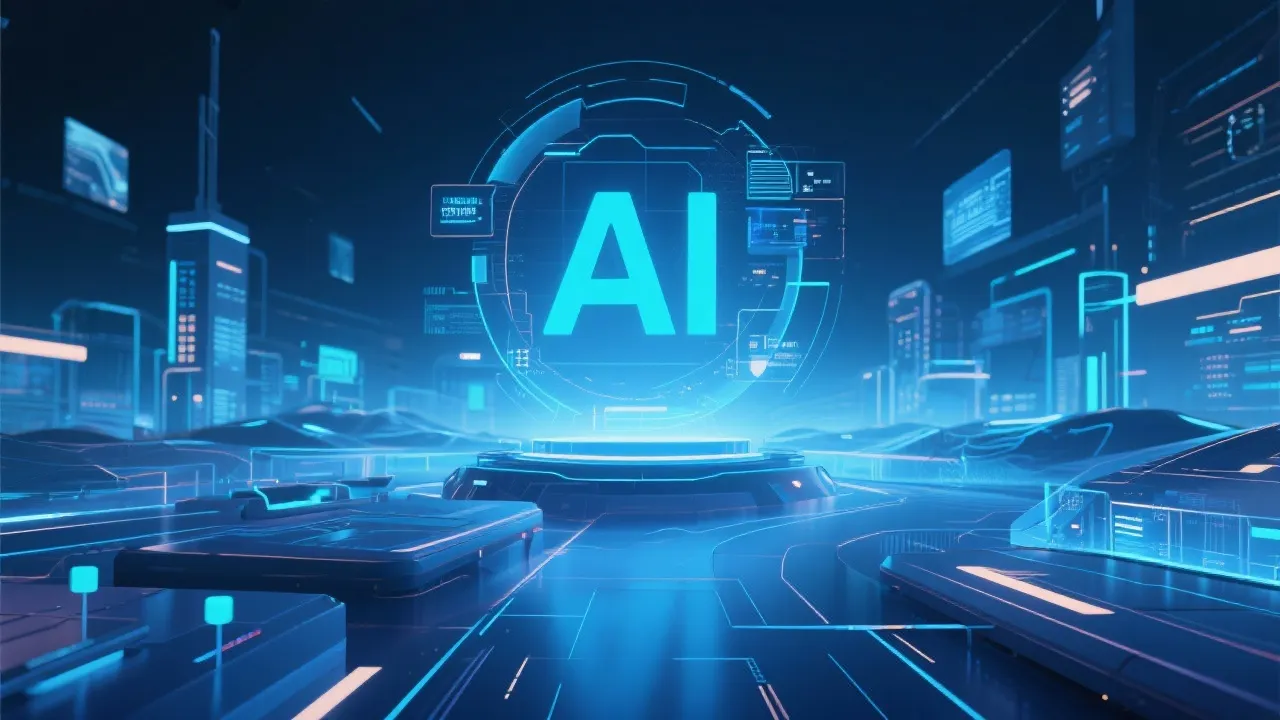This article explores the transformative impact of AI solutions for enterprises, a technological advancement shaping business efficiency, innovation, and competitive advantage. AI enhances data processing, customer service, and decision-making capabilities, driving numerous industries toward future readiness and strategic growth.

The integration of Artificial Intelligence (AI) solutions into enterprises stands as a revolutionary shift in how businesses function and compete. From automating routine tasks to offering insightful analytics that support strategic decision-making, AI technologies are ushering in an era of unprecedented productivity and innovation. As organizations continue to evolve, understanding the multifaceted applications of AI becomes essential for maintaining competitiveness in today’s rapidly changing business environment. This article delves into various aspects of AI applications in enterprise settings, offering insights from industry experts on its impacts, implementation challenges, and future prospects.
AI solutions for enterprises are not just tools but strategic allies in business transformation. These technologies help organizations streamline operations, enhance customer interactions, and unlock new revenue streams. AI applications can include natural language processing for customer service, machine learning algorithms for predictive analytics, and robotic process automation (RPA) for handling repetitive tasks. For instance, natural language processing improves customer service by enabling chatbots to handle inquiries efficiently, reducing the need for human intervention and significantly improving response times.
Moreover, AI technologies assist in data analysis and customer insights, which are crucial for businesses looking to achieve a competitive edge. By analyzing large datasets and identifying patterns, AI can help organizations understand customer behavior better and predict future trends. This capability allows enterprises to tailor their products and services to meet evolving market demands swiftly and effectively.
Furthermore, the implementation of AI facilitates a culture of innovation within organizations. By automating mundane tasks, employees can divert their attention toward more strategic initiatives, fostering a workplace environment that prioritizes creativity and critical thinking. Consequently, businesses can more readily adapt to the changing market landscape, positioning themselves as leaders in their respective industries.
While the benefits are substantial, enterprises face several challenges when integrating AI solutions, some of which are detailed below:
Leading companies across industries provide exemplary cases of successful AI adoption:
| Company | AI Application | Outcome |
|---|---|---|
| Retail Giant A | Predictive Inventory Management | Reduced waste and improved stock availability by 30% |
| Financial Institution B | Fraud Detection Systems | Decreased fraud losses by 25% through early detection |
| Health Care Provider C | AI-Powered Diagnostics | Enhanced diagnostic accuracy by 20%, improving patient outcomes |
| Logistics Company D | Route Optimization Algorithms | Decreased delivery times by 15%, increasing customer satisfaction |
These success stories reflect a broader trend where organizations harness AI to drive efficiencies and innovate processes. Companies in various sectors have reported significant improvements in managing resources, predicting customer needs, and enhancing product offerings, demonstrating the potential of AI to reshape contemporary business practices.
Antonio Suarez, a renowned AI strategist, notes, "The adoption of AI is not just a technological upgrade; it's a transformative approach that redefines the future landscape of enterprises. The key to successful AI integration lies in strategic planning that aligns technology with business goals." This alignment is crucial, as businesses must ensure that their AI strategies are not merely operational but also contribute to their overarching visions and values.
Emily Chang, CTO of a major enterprise, adds, "One of the complexities we face is ensuring that AI solutions are ethical and transparent and that they augment human capabilities rather than replace them." The ethical dimension of AI cannot be overstated, as organizations grapple with the implications of AI decision-making capabilities on societal norms and individual rights.
Furthermore, William Thompson, an AI ethics researcher, emphasizes the importance of continuous monitoring of AI systems. "It's vital for organizations to establish feedback loops that allow them to refine AI applications, ensuring that they respond effectively to changing ethical considerations and societal expectations," he suggests. This dynamic approach to AI management empowers organizations to stay aligned with ethical standards while also meeting business objectives.
AI is positioned to play a critical role in the future growth of enterprises. The trend is toward creating more autonomous AI systems capable of making complex decisions with minimal human intervention. These systems will leverage vast datasets to provide insights that were previously unimaginable, enabling more effective strategies tailored to the unique dynamics of various industries.
As the technology evolves, we expect more personalized and intelligent automation tools that cater to industry-specific challenges and opportunities. For example, in the manufacturing sector, predictive maintenance powered by AI could revolutionize operations by identifying potential equipment failures before they occur, thus minimizing downtime and enhancing productivity. In marketing, AI-driven tools can analyze consumer behavior to craft highly tailored advertising campaigns that resonate on an individual level.
Industries that embrace these changes will likely lead in innovation, efficiency, and market share. To remain competitive, businesses must not only adopt AI technologies but also cultivate a culture that embraces data-driven decision-making and fosters a willingness to experiment with new methodologies. This holistic integration of AI into enterprise culture will bolster agility, enabling organizations to pivot swiftly in response to market fluctuations.
In summary, the future is bright for enterprises willing to invest in AI technologies. By prioritizing ethical considerations, aligning technology with strategic goals, and continually adapting to new innovations, businesses can unlock tremendous potential and redefine their industries’ landscapes.
Explore the Tranquil Bliss of Idyllic Rural Retreats

Ultimate Countdown: The 20 Very Legendary Gaming Consoles Ever!

Understanding Halpin and its Influence

Affordable Full Mouth Dental Implants Near You

Discovering Springdale Estates

Illinois Dentatrust: Comprehensive Overview

Embark on Effortless Adventures: Unveiling the Top in Adventures Made Easy Outdoor Equipment

Unveiling Ossur Valves: Innovation in Prosthetics

Unlock the Full Potential of Your RAM 1500: Master the Art of Efficient Towing!
